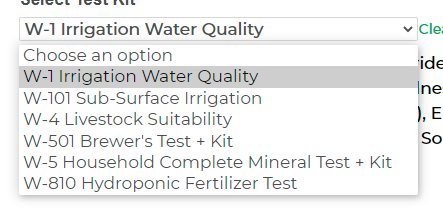Hey everyone,
So my wife and I bought a new house that we are moving into in a couple of months. Of course one of the things I'm really excited about is the space I'll have for brewing beer. I currently do all grain BIAB, and to date have been using RO/Distilled water and building up my profile. At the new house, it has well water. So my question is if I get the profile down from a report, how consistent can I expect that water profile to be time after time? Is well water generally consistent or does it swing like municipal water can?
Then the second question is as part of inspection I received a report about the water (attached). Is there a way to build a water report from this? It doesnt seem to use the same minerals that I have seen people reference before?
Any help would be appreciated! Stay safe everyone!
So my wife and I bought a new house that we are moving into in a couple of months. Of course one of the things I'm really excited about is the space I'll have for brewing beer. I currently do all grain BIAB, and to date have been using RO/Distilled water and building up my profile. At the new house, it has well water. So my question is if I get the profile down from a report, how consistent can I expect that water profile to be time after time? Is well water generally consistent or does it swing like municipal water can?
Then the second question is as part of inspection I received a report about the water (attached). Is there a way to build a water report from this? It doesnt seem to use the same minerals that I have seen people reference before?
Any help would be appreciated! Stay safe everyone!

















































![Craft A Brew - Safale S-04 Dry Yeast - Fermentis - English Ale Dry Yeast - For English and American Ales and Hard Apple Ciders - Ingredients for Home Brewing - Beer Making Supplies - [1 Pack]](https://m.media-amazon.com/images/I/41fVGNh6JfL._SL500_.jpg)








